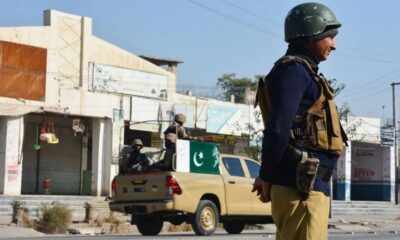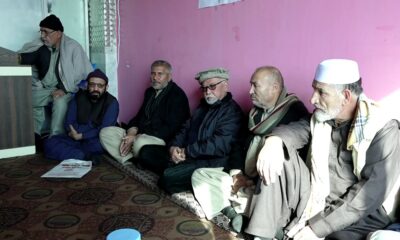Latest News
UN’s DiCarlo says trust and honesty needed by all parties for Afghanistan to move forward
“Human rights and especially the rights of women and girls , and inclusion of all members of society will continue to be an integral part of our discussions,” DiCarlo said.
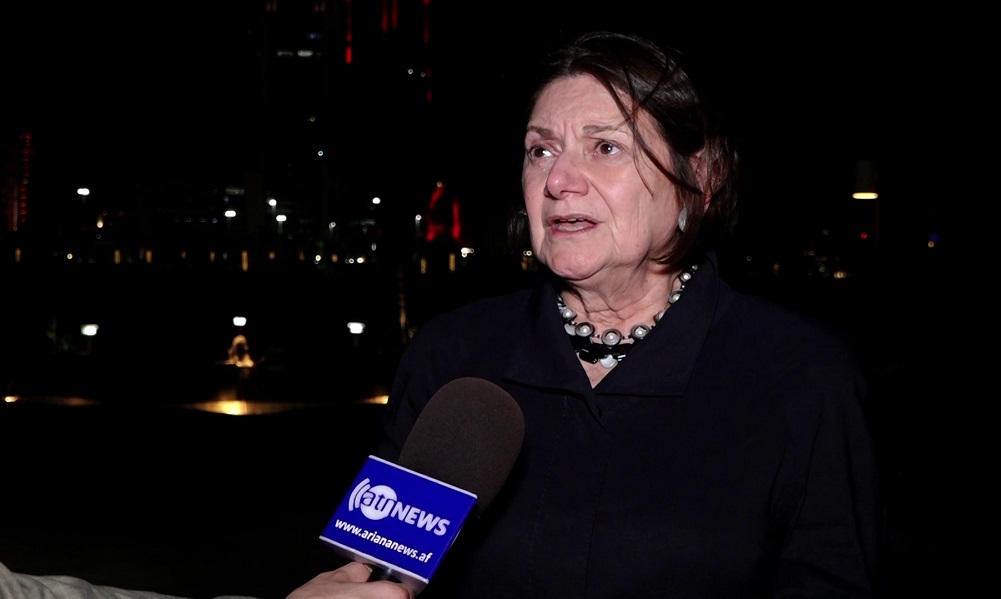
UN Under-Secretary-General for Political and Peacebuilding Affairs Rosemary DiCarlo said on Tuesday after meeting with members of Afghanistan’s civil society that there “really is a need to build trust on all sides”.
Addressing a press conference after her meeting, she said it was important to have dialogue “that’s built on honesty”.
“It’s got to be based on principles, those of the UN Charter, and various human rights treaties that Afghanistan is a party to.”
She said: “We are still at the beginning of this process.”
According to her there was a need for everyone to be patient and realistic.
“It's a process based on the independent that the UN Security Council recognized last November; the assessment calls for a more coordinated and structured process, with clear conditions and expectations from all sides.
“It also calls for a principled, step-for-step approach with a clear understanding of the outcomes and commitments from all sides.
“Human rights and especially the rights of women and girls , and inclusion of all members of society will continue to be an integral part of our discussions.”
In terms of moving forward, DiCarlo said there had been a discussion in Monday’s meeting with special envoys and the Islamic Emirate on the possibility of establishing smaller working groups to discuss key issues.
“We are continuing that discussion on how to proceed forward,” she said.
Once again she reiterated that this process was in its early stages and would need time and patience.
“Really, our approach has one goal. And that’s helping all the people of Afghanistan.”
DiCarlo’s meeting with civil society representatives not part of the official agenda. Contrary to earlier reports that no envoys from foreign countries had attended this meeting, DiCarlo said there “had been a fair number of member states” at the meeting.
She pointed out attendance had been “optional”.
Asked whether civil society representatives were upset at having been sidelined from the 3rd Doha meeting she said: “Obviously, civil society, many would have like to be at the meeting but they were pleased to have the opportunity to speak with some of the envoys.”
DiCarlo was also asked why such the two-day meeting and the meeting with Afghan civil society representatives had been so shrouded in secrecy; and why the identities of the civil society members were being withheld.
In answer, she put it down to the UN “respecting the privacy” of individuals and that UN meetings are closed events.
She did however say the international community does feel that Afghanistan is not abiding by its international obligations.
However, at the very end of the two-day meeting, mention was made that eventually there would be a need for an “intra-Afghan dialogue”.
“What we are doing is not an intra-Afghan dialogue right now. We are just going through issues at this point; and we want to get various perspectives.
“Let’s be perfectly honest, the citizens and the de facto authorities are not ready for sitting down at the table with each other. At least they weren’t for this past meeting,” she said.
The two-day UN-led Doha meeting was the third of its kind but the first one that the Islamic Emirate attended.
However, representatives of Afghan civil societies had been barred from attending the event. Instead, DiCarlo and some foreign envoys met with them in a separate meeting on Tuesday.
Related stories:
UN keeps identity of Afghan activists at Doha meeting under wraps
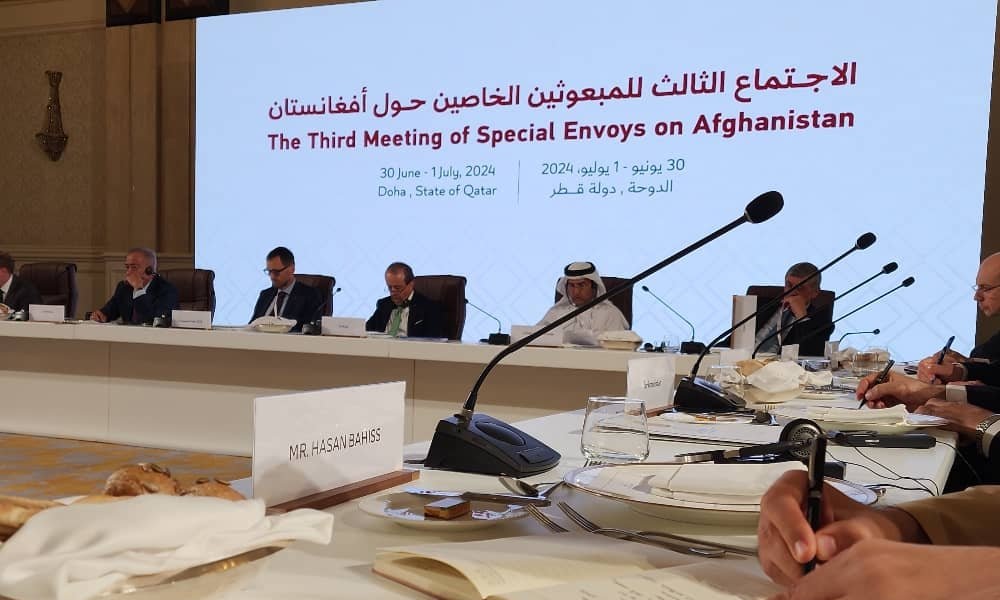
Mujahid sums up Doha meeting, says most countries willing to cooperate with Afghanistan
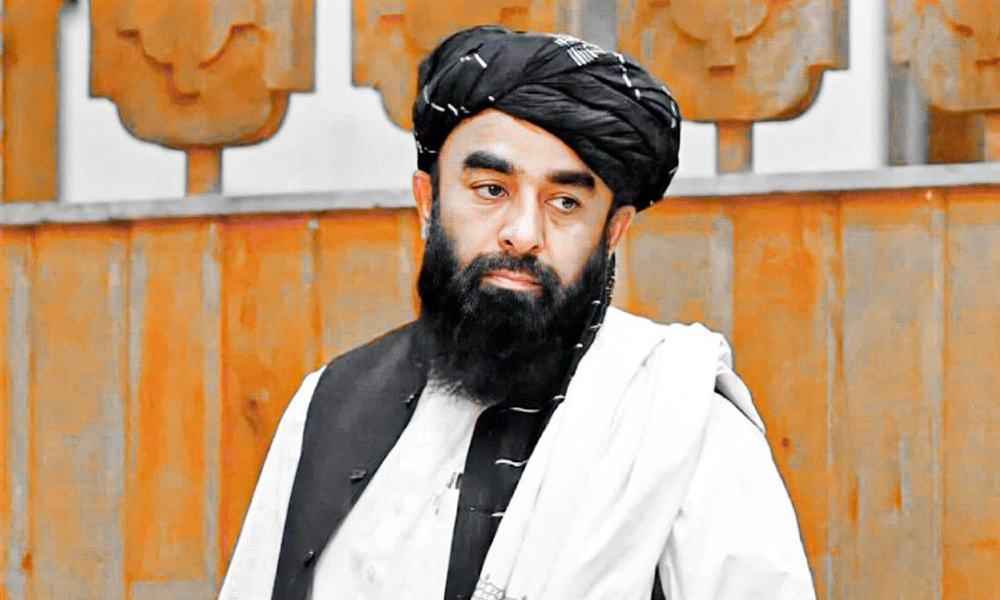
Latest News
G7 envoys urge national dialogue for lasting stability in Afghanistan

Special Representatives of the Group of Seven (G7), including the European Union, have emphasized the importance of a national dialogue for achieving long-term stability in Afghanistan.
Following a meeting on Afghanistan in Geneva, Switzerland, G7 special envoys issued a joint statement calling for the restoration of women's rights and urging the Islamic Emirate to fight terrorism.
The statement reads: "Achieving sustainable peace and stability requires credible governance that represents all segments of Afghan society."
The representatives also expressed concern over the IEA’s decision to ban girls from attending medical institutes, warning that it will have devastating consequences for the citizens, particularly mothers and their infants.
The statement described this ban as unacceptable and called on the Afghan authorities to lift it immediately.
Earlier, countries and international organizations had called for the removal of restrictions on the education and employment of women and girls, emphasizing the need for a national dialogue.
In response to these concerns, IEA has repeatedly stated that it will not allow interference in the internal affairs of the country.
The G7 special envoys also expressed their concern about the recent terrorist attacks in Kabul and the surrounding region, warning that terrorism remains a serious threat to Afghanistan's security. They confirmed the actions of the IEA against Daesh but stressed the need for more decisive measures.
Latest News
Afghanistan’s bright future lies in educating girls: Karzai
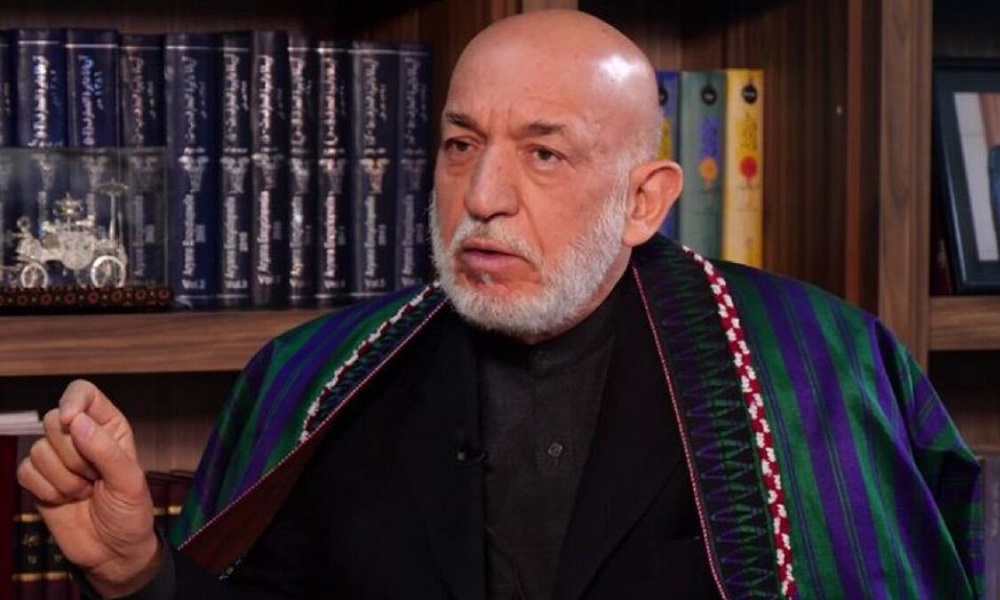
Hamid Karzai, the former president of Afghanistan, says the demand of Afghan girls for the reopening of schools and universities is their fundamental right and adds that Afghanistan cannot have a bright future without ensuring access to education for girls.
In a statement on his X (formerly Twitter) account, Karzai said: "The demand and voice of our country’s girls for education and knowledge is a rightful one and crucial for a prosperous Afghanistan."
He further emphasized, "Empowering the youth—both girls and boys—is the only way to achieve self-reliance, break the cycle of poverty, and drive the development and prosperity of society."
Karzai underscored that education is vital for Afghanistan’s growth and development, expressing hope that the doors of schools and universities for girls will be reopened as soon as possible.
Latest News
IEA to set up special courts to address pensions
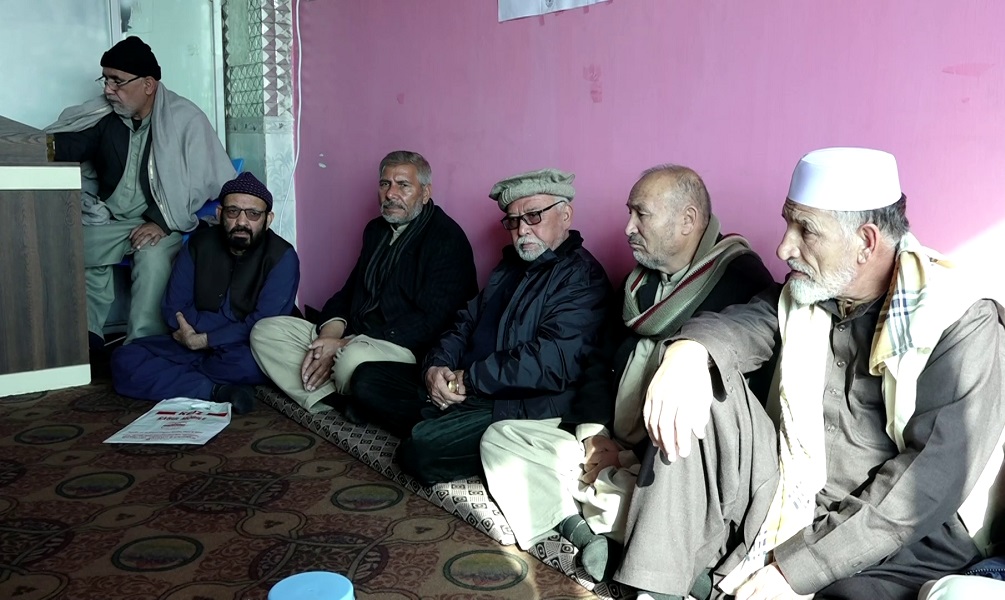
Mawlawi Hebatullah Akhundzada, the supreme leader of the Islamic Emirate of Afghanistan (IEA), has issued a decree to establish special courts to address pensions, Bakhtar news agency reported on Saturday.
According to the decree, the courts must confirm and process pensions in accordance with Sharia and law.
Pensioners have repeatedly voiced concern over delay in payment, saying that their financial challenges are growing.
Earlier this year, IEA's supreme leader banned money being deducted from salaries of government employees for pensions.
He also requested information on the tenure of employees and the total amount deducted from salaries for pensions.
-
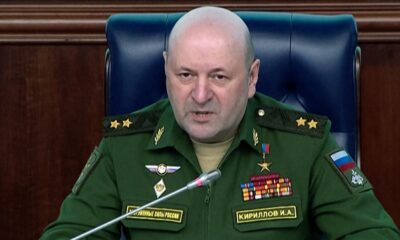
 Regional5 days ago
Regional5 days agoBomb kills chief of Russian nuclear protection forces in Moscow
-

 Sport5 days ago
Sport5 days agoATN once again seals deal to broadcast upcoming IPL across Afghanistan
-

 Sport5 days ago
Sport5 days agoLanka T10: All three matches abandoned due to rain
-

 Latest News5 days ago
Latest News5 days agoIndia hoping to import coal and marble from Afghanistan
-

 Sport4 days ago
Sport4 days agoZimbabwe’s opening ODI against Afghanistan abandoned
-

 Latest News5 days ago
Latest News5 days agoFuel prices rise in Herat as winter approaches
-

 Latest News5 days ago
Latest News5 days agoJapan announces $27.5 million aid package to Afghanistan
-

 Latest News3 days ago
Latest News3 days agoTwo horror accidents on Kabul-Kandahar highway leave 52 dead










